Iris Folding Computer Design
By far, the easiest way to create your own iris folding pattern is to use a pencil and a ruler and draw concentric shapes each smaller than the previous. But if you are one of those people who like to draw on a computer, you will need a way to calculate two things:
1) the size of the inner square
2) the angle to rotate the inner square.
The equations below will allow you to calculate the size of the inner shape and the angle of rotation. Armed with that info, you can generate the inner shapes and rotate them so they fit into a nice spiral. Two solutions are provided: the first is for a square and the second is suitable for other shapes such as a triangle, pentagon, hexagon, and so forth.
Calculations for a Square Template
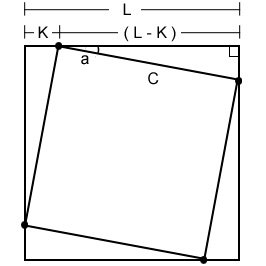
You want to determine length of side C and angle of rotation a.

The side lenght of the inner square can be determined with Pythagoras’ theorem:
a2 = b2 + c2
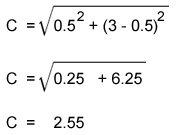
You would think that if you start with a square of size 3″ and you decrease its size by 0.5″ then the inner square would be 2.5″. This is not true because you are rotating the inner square so the size needs to be a little large that expected.

The angle of rotation can be determined with the trigonometry tanφ = y/x
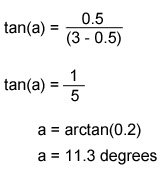
Summary
Start with first square of size 3 inch.
Make second square size 2.55 inch, rotate it 11.3 degreees.
Repeat calculation with L = 2.25 and K = 0.5
Continue until inner most square is close to or less than 0.5 inches wide
Calculations for Triangle, Pentagon, Hexagon, and More
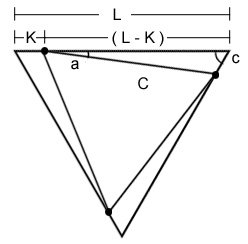
| Shape | Angle c |
| triangle | 60 degrees |
| square | 90 degrees |
| pentagon | 108 degrees |
| hexagon | 120 degrees |
| heptagon | 128.57 degrees |
| octagon | 135 degrees |
| nonagon | 140 degrees |

The side length of the inner triangle can be determined with the law of cosines:
a2 = b2 + c2 – 2abcos(c)
Note that angle c is 90 degrees for a square, so cos(90) = 0; this means the -2abcos(c) part becomes zero and the equation reduces to a2 = b2 + c2 which is the same as the instructions above for a square. [The law of cosines reduces to the pythagorean theorem for right triangles.]
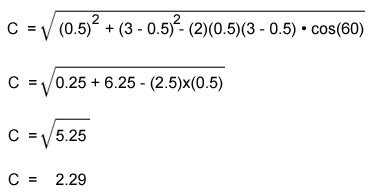
Remember that cos(c) is
cos(60) for triangle
cos(90) for square
cos(108) for pentagon
cos(120) for hexagon
cos(128.57) for heptagon
cos(135) for octagon
cos(140) = nonagon
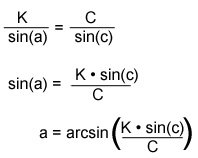
The angle of rotation can be determined with the law of sines where:
A = B = C
sin(a) sin(b) sin(c)
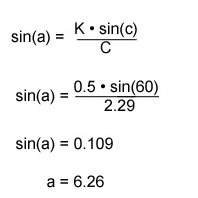
Again, remember that sin(c) is different depending on the shape you are working with:
sin(60) for triangle
sin(90) for square
sin(108) for pentagon
sin(120) for hexagon
sin(128.57) for heptagon
sin(135) for octagon
sin(140) = nonagon
Books about Iris Folding
- Iris Folding Stylish Greeting Cards by M. Gaasenbeek
- 130 New Iris Folded Cards to Make by M. Gaasenbeek
- Iris Folding 2: 29 Designs for Cards and Scrapbooks by C. Donasky
- The Simplicity of Iris Folding by Sarah Decker
- Iris Folding For Winter by Gaasenbeek & Beauveser
- see Iris Folding books
Please Help
Please help by reporting broken links so that we can fix them. One easy message from you can save us hours and hours of clicking. Thanks!
-
More Origami Diagrams and Instructions…
-
These free origami instructions are made available to you by the paper folding community at large. If you have a diagram you would like to share, or if your diagram is listed here and you wish to have it removed, please Contact Us. Diagrams are intended for personal use. Copyright of the models lie with the origami creators and designers. Please contact the designer and/or creator directly for non-private usage of a model and/or artwork.

























